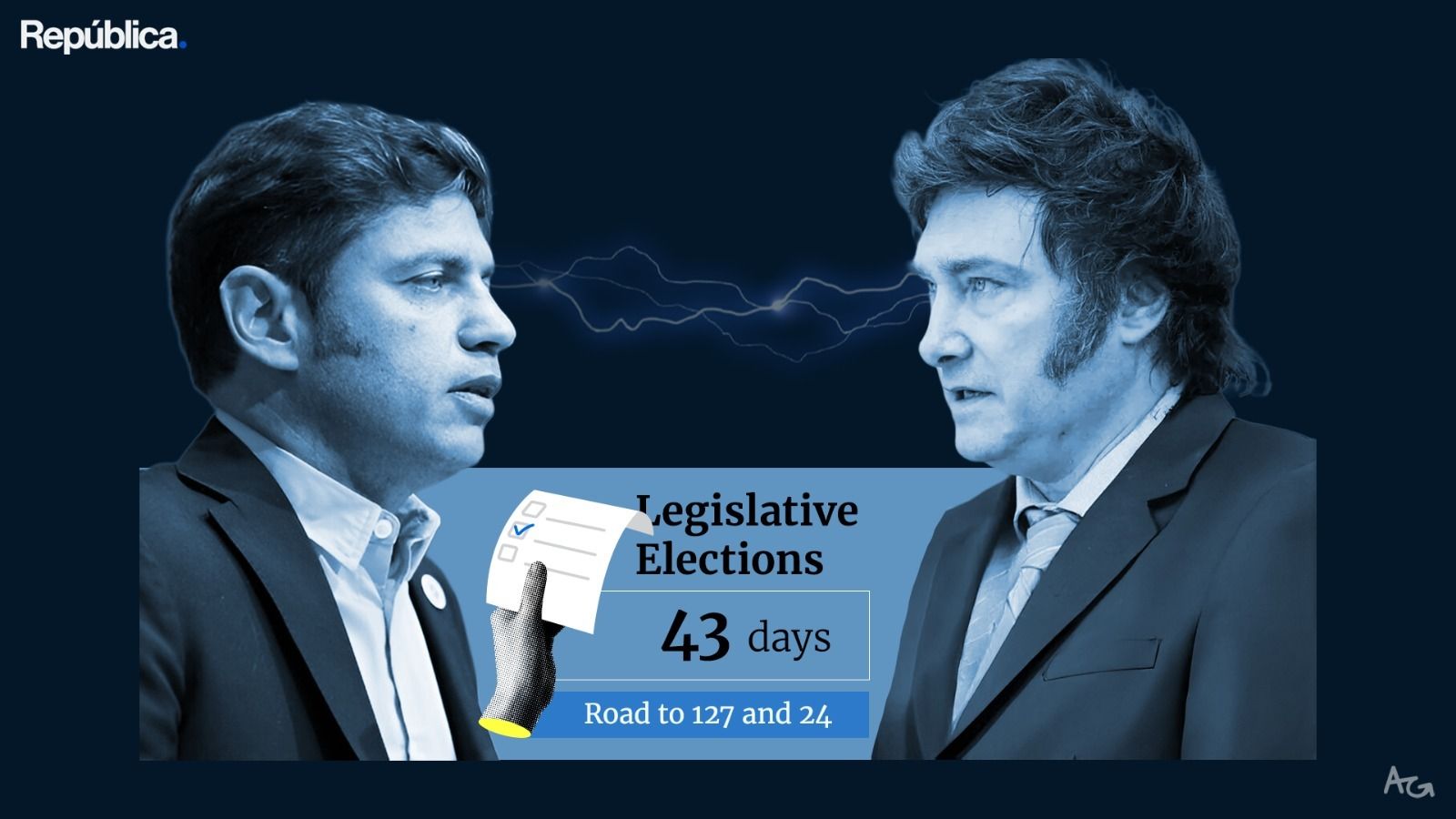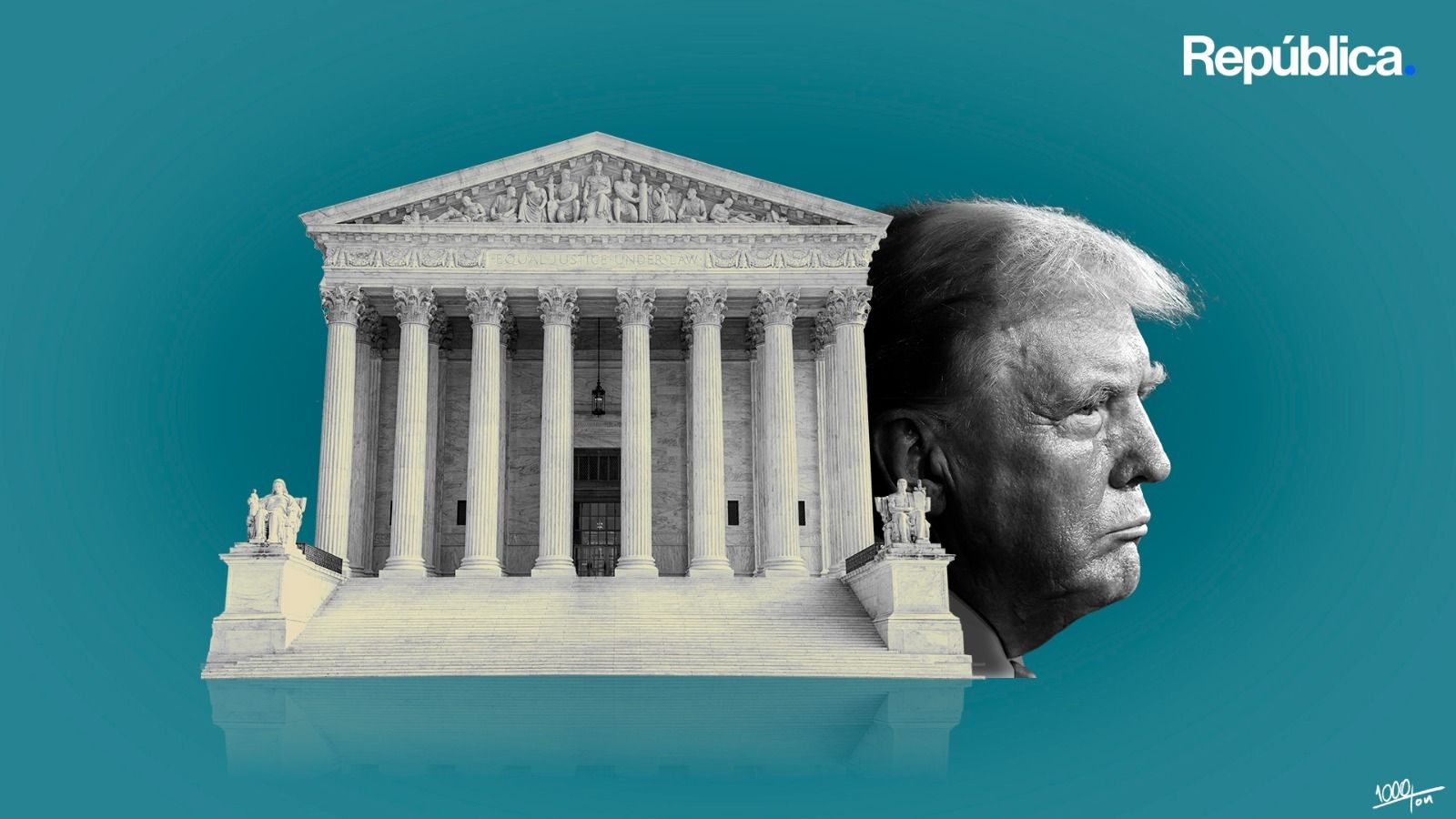- GCaM
- Posts
- Milei, not out yet
Milei, not out yet

Dear all,
We welcome you to the Greater Caribbean Monitor (GCaM).
In this issue, you will find:
Milei was hit hard, but not knocked out
SCOTUS faces high-stakes Trump tariff fight
As always, please feel free to share GCaM with your friends and colleagues.
If you’ve been forwarded this newsletter, you may click here to subscribe.
Best,
The GCaM Team
Milei was hit hard, but not knocked out
647 words | 3 minutes reading time

Milei suffered his first significant defeat as president of Argentina, one that, given its proximity to the legislative elections, could herald dark days for the rest of his term.
The picture. On September 7, the ruling party suffered a heavy defeat in the legislative elections of the Buenos Aires Province (PBA). Axel Kicillof’s Peronist force (Fuerza Patria) prevailed over La Libertad Avanza (LLA), which had allied with a diminished PRO (Macri’s party), by almost 14% (47.28% to 33.71%).
Milei prevailed in the agricultural interior districts; however, Fuerza Patria swept the populous metropolitan area.
The PRO allied itself—though without names on the ballot—with LLA after Macri’s harsh defeat in the Buenos Aires City (CABA) elections in May of this year. Still, the coalition brought no benefit to the president in the provincial vote.
The legislature will now consist of 24 seats for Peronism, 15 for LLA, 3 for Somos/UCR, and another 4 to be distributed by chamber and section.
Why it matters. In the (national) legislative elections of October 26, 127 of 257 deputies and 24 of 72 senators will be renewed. In the Senate, the eight districts going to the polls are Chaco, Entre Ríos, Neuquén, Río Negro, Salta, Santiago del Estero, Tierra del Fuego, and CABA. LLA currently holds only about 15% representation in the Lower House and 10% in the Senate.
Its weak bench has so far been one of Milei’s main vulnerabilities as president, since the current composition forces him to rely on negotiations with PRO and the Radicals (UCR).
While the PRO is a relatively reliable ally, UCR’s loyalty is a coin toss, complicating the outlook for more ambitious projects.
Between the lines. The debacle has multiple causes and is a source of concern for Milei, but it does not necessarily foretell a defeat in October. One of the main reasons for the result is a recurring problem for Milei: the lack of territorial structure. Axel Kicillof is not only one of the most prominent surviving figures of Peronism but has also been governor of the PBA province since 2019 and is, in his own way, a political chief capable of mobilizing mayors and party machinery. Mobilization, oversight, and grassroots presence were decisive in at least 85 of 135 municipalities.
Much of LLA’s vote base did not turn out on September 7. Participation was low—around 61%—while turnout in Buenos Aires provincial elections is usually between 72% and 80%.
When elections are held separately, however, the floor drops to around 68%, something Kicillof sought from the outset, knowing that his mobilization capacity would allow him to benefit from lower participation.
Additionally, the scandal of alleged bribes coordinated by Karina Milei with the National Disability Agency affected undecided voters, either pushing them toward Fuerza Patria or persuading them not to take part in the elections.
Yes, but. Although the blow is harsh, it is neither definitive nor seems indicative of what will happen in October. Nationally, a poll by Isasi-Burdman shows that only 29% of the population believes Karina and Javier Milei received bribes for disability purchases. Additionally, 49% agree that the entire scandal was an opposition operation. The same polling firm that predicted Milei’s 2023 victory places him at 41% vote intention, compared to 25.5% for Peronism.
The left’s strength lies in its coalitions: when alliances are taken into account, LLA would reach 45% (adding the modest 4% from PRO), while Fuerza Patria would climb to 36.1% (a rise of more than 10 points) thanks to its alliances.
Likewise, although 53% of the population disapproves of Milei’s administration, he remains the country’s best-rated political leader, with 48% of voters holding a favorable opinion of him.
The PBA elections are a warning sign. Milei still leads the way toward a positive result—though insufficient for governability without compromise—but Kicillof’s stronghold makes clear that any misstep could prove fatal, with only 43 days left before October 26.
SCOTUS faces high-stakes Trump tariff fight
485 words | 2 minutes reading time

The Supreme Court now holds in its hands a ruling that could reshape geoeconomic relations across the globe. The Court of Appeals for the Federal Circuit considered Trump’s tariffs a legal overreach. Thus, SCOTUS has taken up the case directly to address the issue. The Court placed the legality of the global tariffs on a fast track, likely given the economic uncertainty surrounding the alleged trillions of dollars in duties at stake.
In perspective. The upcoming judicial decision rests on a series of past rulings that serve as its legal and ideological backbone, providing more profound insight into SCOTUS’s current behavior.
Trump appointed three conservative justices during his first term—Gorsuch, Kavanaugh, and Barrett—establishing a 6–3 majority on the Court.
The Court regularly ruled in favor of Trump’s policies during his first term, with occasional restraints. Most of those restraints limited lower court injunctions, reinforcing the role of a strong and efficient executive.
The political decisions enabled by these rulings have almost always concerned the power of a strong president vis-à-vis the administrative state. SCOTUS upheld presidential authority to remove officials and to direct agencies, pushing back against narratives of administrative autonomy.
Between the lines. Although SCOTUS may appear lenient toward Trump, a closer look at the conservative spectrum provides a more nuanced explanation of its decisions.
Trump’s political projects have focused on two main fronts: reducing and controlling the administrative state, and expanding migration and security operations.
Older conservative justices—Roberts, Thomas, and Alito—tend to support administrative expansion in the realm of security. The newer conservatives—Gorsuch, Kavanaugh, and Barrett—tend to favor direct presidential control over the administrative state, its reduction, and limitations on its self-granted regulatory powers.
The legal-ideological inclinations driving the rulings, along with SCOTUS’s tendency to avoid direct confrontation with the President, create the appearance of a deferential court.
What’s Next. In October, the Court will decide whether to uphold or strike down the tariffs, in the midst of a highly charged political environment.
The most likely outcome would be approval of presidential authority to impose tariffs, justified under the broad umbrella of “economic security.” Striking down the tariffs could place the United States in a diplomatic dilemma if the President’s global project is undermined.
If the tariffs are overturned, it will likely be due to flaws in the imposition process rather than an unconstitutional claim against the tariffs themselves. A corrected legal process could allow the tariffs to be reinstated.
SCOTUS may face some damage to its legitimacy in an already polarized United States, particularly after the assassination of Charlie Kirk.
In conclusion. The October decision and its details will be crucial in defining the role of security narratives in the United States, especially in legal terms. Continued expansion of presidential power should be expected in decisions that pit the administrative state against the president.
SCOTUS will likely support the President again, sparking debate among the different conservative currents within the Republican ranks.
What We’re Watching 🔎 . . .
Charlie Kirk´s widow says Turning Point will carry on after the assassination of her husband [link]
Sophia Cai, Politico
Erika Kirk, widow of Turning Point USA founder Charlie Kirk, delivered her first public remarks Friday after her husband’s assassination, pledging the conservative youth group would continue its mission. Speaking from the Phoenix studio where Kirk recorded his podcast, she vowed to expand Turning Point’s reach, promising, “I’ll make Turning Point the biggest thing this nation has ever seen.”
She confirmed that the AmericaFest conference in December will proceed and suggested she will take on a leadership role. Her comments followed the arrest of a 22-year-old Utah man in the killing. Kirk thanked police, first responders, Turning Point staff, and political allies including Vice President JD Vance and President Donald Trump, who expressed confidence in the group’s future.
Brazil’s supreme court finds former leader Jair Bolsonaro guilty of plotting a coup [link]
Michael Pooler, Financial Times
Brazil’s Supreme Court has convicted former president Jair Bolsonaro of plotting a coup to stay in power after losing the 2022 election. Four of five judges found him guilty on five charges, including leading a criminal conspiracy and attempting to overthrow democracy. He could face more than 40 years in prison.
Prosecutors said the plot involved assassination plans against President Luiz Inácio Lula da Silva, his running mate, and Justice Alexandre de Moraes, who oversaw the case. Key evidence included a draft coup decree found in the presidential palace and testimony from Bolsonaro’s former aide Mauro Cid, who turned state witness.
The trial has shaken Brazil and fueled a diplomatic rift with Washington, where President Donald Trump called it a “witch-hunt,” while his administration imposed tariffs and sanctions. Bolsonaro denies the charges, but legal experts say his chances of appeal are slim.
